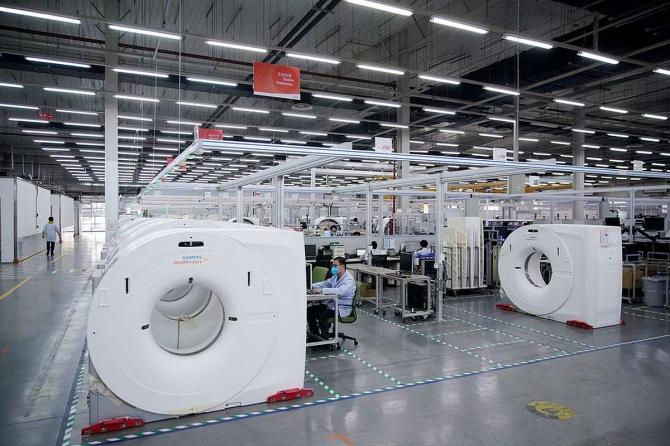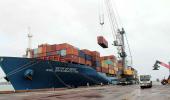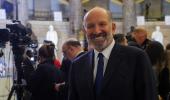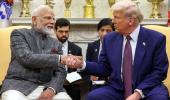The USTR report, released just ahead of the US' April 2 deadline for implementing reciprocal tariffs, has also cited high tariffs and price caps, which have not increased in line with inflation, as key obstacles for US businesses.

The US Trade Representative (USTR) has flagged concerns such as delays due to the absence of guidelines for issuing import licences for refurbished devices, which are affecting medical device exports to India, in its 2025 National Trade Estimate Report on foreign trade barriers.
The report, released just ahead of the US' April 2 deadline for implementing reciprocal tariffs, has also cited high tariffs and price caps, which have not increased in line with inflation, as key obstacles for US businesses.
Regarding refurbished medical devices, the report said that the absence of guidelines for issuing licences and clear import processes under the Medical Devices Rules has historically caused delays and uncertainty, limiting US exports.
It adds that US companies have been unable to import their devices into India since April 2024, after the Central Drugs Standard Control Organization suspended approvals of existing and new applications for import licences. This follows the drug regulator's decision to stop imports of all high-end refurbished medical devices, such as magnetic resonance imaging (MRI) scanners and robotic-assisted surgery systems, citing patient safety concerns.
Valued at around Rs 1,500 crore, the pre-owned medical equipment market currently constitutes about 10 per cent of India's total medical equipment industry.
The report also alleged that the Government of India took advantage of its tariff flexibility in the 2019-20 Budget by increasing tariffs without any notice or public consultation process on nearly 70 product categories, including key US exports such as medical devices and chemicals.
Pavan Choudary, chairman of the Medical Technology Association of India (MTaI), said that if President Trump's aggressive posture prompts broader negotiations that ultimately lower tariff and trade barriers, it could paradoxically contribute to a more open economic landscape.
"Ultimately, the hope is that the needle moves towards fairness, which both sides agree on. If there are high import duties in India on medical device imports, or if there are high non-trade barriers in any country on medical device imports, then all these need to be toned down," he added.
Raising concerns over price caps on devices such as coronary stents and knee implants imposed by India's National Pharmaceutical Pricing Authority, the report said that the price controls have not been increased in line with inflation.
"These caps do not differentiate based on the cost of production or technological innovation, which dissuades US companies from serving the market," it added.
It also observed that India maintains very high basic Customs duties (in some cases exceeding 20 per cent) on drug formulations, including life-saving drugs and finished medicines listed on the World Health Organization's list of essential medicines.
The USTR report comes even as domestic medical device manufacturers have raised concerns over tariff structures.
The domestic manufacturers' body, the Association of Indian Medical Device Industry (AiMeD), emphasised the importance of continued dialogue and balanced trade practices between India and the US in the strategic healthcare sector.
Rajiv Nath, forum coordinator of AiMeD, said that the global medical device market requires cooperative and fair trade practices, with equal attention to tariff and non-tariff barriers to ensure the sustainability of the industry in India and the US.
"We value the USTR's engagement and remain committed to constructive discussions that support fair and sustainable trade. However, Indian manufacturers face significant regulatory hurdles in the US, with Food and Drug Administration approval costs ranging from $9,280 to over $540,000, compared to the relatively low costs for US imports into India. We hope such imbalances can be addressed through collaboration," he added.
In 2023-24 (FY24), India imported medical devices worth Rs 12,552 crore from the US, a 66.3 per cent increase from Rs 7,547 crore in 2019-20.
Major medical device imports from the US include mass spectrometers, gas analysis apparatus, MRI apparatus, and analytical and diagnostic equipment.
On the other hand, India's total medical device exports in FY24 stood at $3.78 billion, with $287.7 million worth of devices exported to the US.
The report also raised concerns over the standards used to publish quality control orders, specifically mentioning those issued by the Bureau of Indian Standards.
It added that American pharmaceutical stakeholders continue to raise concerns about whether India has an effective mechanism for the early resolution of potential pharmaceutical patent disputes.
* High tariffs, price caps key obstacles for US businesses
* Absence of guidelines to issue licences and clear import processes for refurbished medical devices, causing uncertainty
* In 2019-20, India increased tariffs without any notice or public consultation process on across categories
* High basic Customs duties on drug formulations, including life saving drugs and finished medicines












 © 2025
© 2025